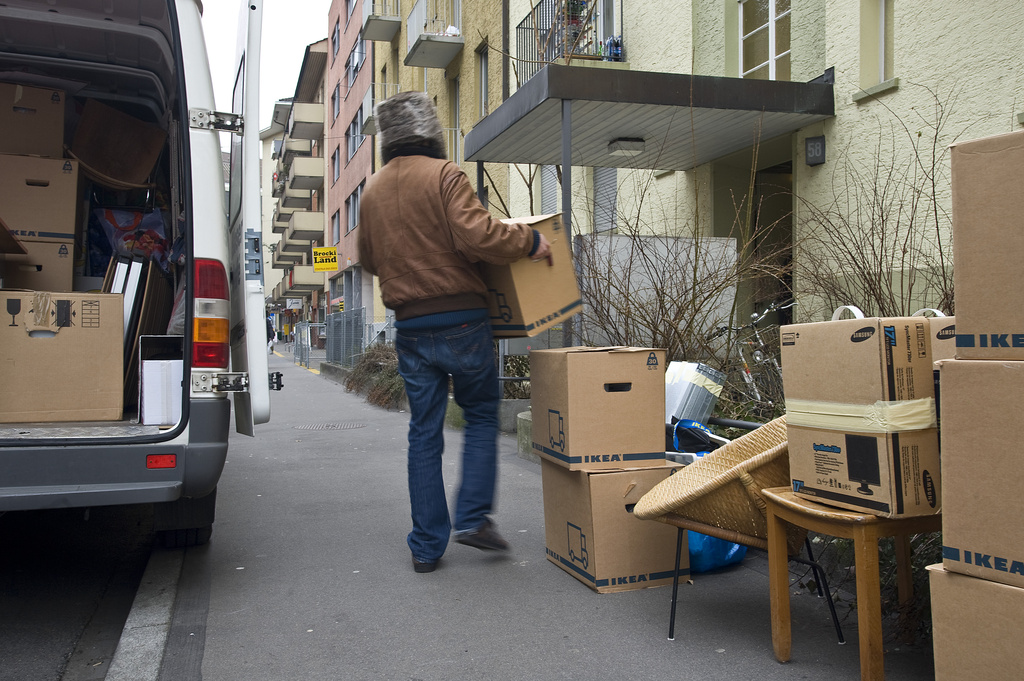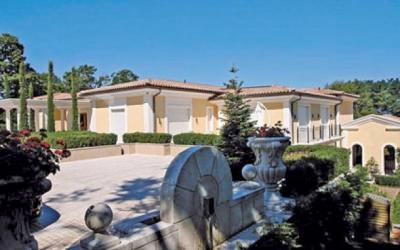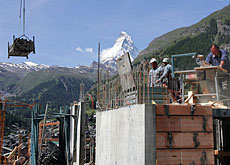Foreigners find holiday home loopholes

Mounting reports of wealthy foreigners breaking strict property purchase laws in Switzerland have added spice to political campaigning during this election year.
Media headlines spoke last week of unscrupulous local lawyers colluding with Russians and Chinese to illegally snap up prime villas. Immigration, and its effect on society, is currently a big theme in Switzerland.
The debate has been gathering momentum since Switzerland opened its borders to European Union workers in 2002. More than one of every five persons living in Switzerland holds a foreign passport, causing some consternation among the local populace.
With everything at stake in the political arena, attention has been focused on rising house prices and a creaking infrastructure. The pro-immigration camp maintains that the new breed of highly skilled foreigners are filling gaps in the workforce and providing momentum to the economy.
But there seems little taste on either side of the fence for millionaire magnates and billionaire industry barons sneaking in through the back door. Some stand accused of flouting the Lex Koller law that limits the purchase of Swiss property by foreigners.
The Handelszeitung economic newspaper last week published anecdotal evidence of various cons that exploited loopholes in the regulations. One scam was to buy vacant hotels and use them as living space rather than their intended business purpose.
“Very leaky”
Dominik Matter, from urban planning consultancy Fahrländer Partner, co-authored a government commissioned report that recommended the scrapping of the Lex Koller rules.
“The regulations are very leaky and are very easy to cheat. They effectively shut out institutional investors, such as real estate funds, but have little effect on private property buyers,” he told swissinfo.ch.
Illicit chicanery has long been suspected, but solid evidence is hard to come by along with a gauge of how widespread it has become. Matter offered other potential loopholes.
“Foreigners are only scrutinised when they buy property in Switzerland, but nobody is checking whether they actually stay here or simply move back abroad after making the purchase,” he told swissinfo.ch.
“It is also possible for a Swiss national to set up a business, buy property in the name of that company and then transfer corporate ownership to a foreigner. The foreign ownership of the property then slips through the gaps.”
Long running issue
The future of the Lex Koller rules – named after former Justice Minister Arnold Koller – has been the subject of debate for many years. Foreigners have long been blamed for buying up holiday homes in popular destinations only to leave them unoccupied for most of the year.
In 2005, the government proposed replacing the Lex Koller with new regulations that would open the market to foreigners while restricting the building of new homes.
In 2007, Swiss environmental campaigner Franz Weber launched two initiatives to keep the Lex Koller rules in place and to prevent urban sprawl. The next year, parliament voted against the abolition of the Lex Koller law until other measures were put into place to prevent property speculation.
At the end of 2008, parliament decided against adopting Franz Weber’s proposals and at the end of last year opted instead to apply stricter planning regulations in cantons. Such measures could pave the way for the Lex Koller rules to be abandoned at a later date.
The issue is again in the spotlight thanks to rapidly rising property prices in Geneva, Zurich and tourist destinations such as St Moritz. There have also been rumours of criminals laundering illicit gains through Swiss property.
Mass market barrier
Dominik Matter believes property prices are influenced to a greater extent by domestic demand, fuelled by recent low interest rates. He also pointed to tax rules that curbed speculation by imposing penalties on owners who quickly sell property.
But Daniel Müller-Jentsch, a real estate expert at think tank Avenir Suisse, believes it would be dangerous to scrap Lex Koller at a time that the strong franc is attracting foreign investment into Switzerland.
“If Switzerland was to scrap the Lex Koller now it would open the floodgates to more urban sprawl in holiday home hot spots,” he told swissinfo.ch. “The safe haven status of the franc would also attract a wider circle of real estate buyers from abroad looking for safe investments.”
“It is true that the restrictions do not present a serious hurdle to determined wealthy individuals who do not mind paying high legal fees and transaction costs. But for the mass market, Lex Koller is still an important market barrier.”
Restrictions on foreigners buying Swiss property were put in place in 1961 in an attempt to prevent overseas investors from distorting the domestic housing market.
The regulations were formalised in 1983 under the Federal Law on the Acquisition of Real Estate by Persons Abroad. The law later also assumed the informal name of former Justice Minister Arnold Koller.
Foreigners (individuals and companies) wishing to buy Swiss property must first obtain a permit from the canton where they wish to purchase. The number of such permits is strictly limited.
European Union citizens and C-permit holders living in Switzerland are not considered “persons abroad” in this context.
Property bought for the purpose of creating a permanent business operation is exempt from the Lex Koller law, unless the business is renting that property.
Foreigners buying property as a home must use it as their main residence.

In compliance with the JTI standards
More: SWI swissinfo.ch certified by the Journalism Trust Initiative














You can find an overview of ongoing debates with our journalists here . Please join us!
If you want to start a conversation about a topic raised in this article or want to report factual errors, email us at english@swissinfo.ch.